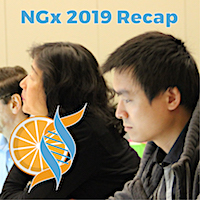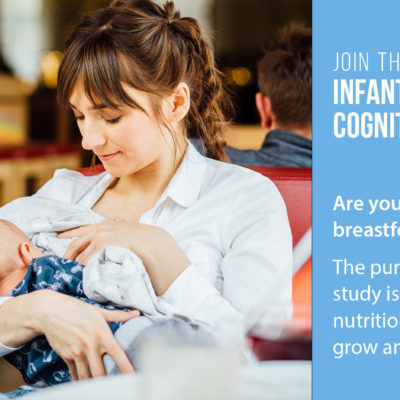Environment and Nutrition
Beginning at conception, environmental factors in health can accumulate over a lifetime and be from sources as broad as geographic location and economic status to specific external sources including physical activity, occupation, risky behaviors and diet. But some of these factors, especially in terms of diet are highly modifiable.
Important research is now being conducted on this concept of the “exposome,” as an environmental complement to the human genome. NRI researchers are learning how diet and other environmental exposures interact with disease and affect responses to treatment.
Publications
Environment and Nutrition Publications
2020
Precision (Personalized) Nutrition: Understanding Metabolic Heterogeneity. Zeisel S
Perspective: Dietary Biomarkers of Intake and Exposure-Exploration with Omics Approaches. Zeisel S
2019
Obesity and Cancer Metabolism: A Perspective on Interacting Tumor-Intrinsic and Extrinsic Factors. Hursting S
When less may be more: calorie restriction and response to cancer therapy. Hursting S
Energy balance and obesity: what are the main drivers? Hursting S
Metabolic Reprogramming by Folate Restriction Leads to a Less Aggressive Cancer Phenotype. Krupenko S
Early-Life Predictors of Fetal Alcohol Spectrum Disorders. May P
Alcohol’s Dysregulation of Maternal-Fetal IL-6 and p-STAT3 Is a Function of Maternal Iron Status. Smith S
2018
Energy balance and gastrointestinal cancer: risk, interventions, outcomes and mechanisms. Hursting S
Research Strategies for Nutritional and Physical Activity Epidemiology and Cancer Prevention. Hursting S
2017
Metabolic Reprogramming by Folate Restriction Leads to a Less Aggressive Cancer Phenotype. Krupenko S
Contribution of Dietary Supplements to Nutritional Adequacy in Various Adult Age Groups. Zeisel S
2016
CerS6 Is a Novel Transcriptional Target of p53 Protein Activated by Non-genotoxic Stress. Krupenko N
Abnormal Eating Behaviors Are Common in Children with Fetal Alcohol Spectrum Disorder. Smith S
Impact of a western diet on the ovarian and serum metabolome. Sumner S
Metabolomics enables precision medicine: “A White Paper, Community Perspective”. Sumner S
Related News
Recap: 2019 Nutrigenetics, Nutrigenomics and Precision Nutrition Short Course
Participants from around the world attended the NRI’s fourth consecutive Nutrigenetics, Nutrigenomics, and Precision Nutrition Short Course from June 3 – 6 in Kannapolis on the North Carolina Research Campus. Known as “NGx,” the 4-day, workshop-style course provides...
Infant Nutrition and Cognition Study
Study Purpose: The purpose of this research study is to determine if eating eggs during breastfeeding will improve nutrient content of milk and infant cognition. Recruiting: Healthy lactating women at 12-15 weeks postpartum What participants will do: You and your...
Infant Nutrition and Cognition Study
Study Purpose:
To show how nutrition helps babies grow and learn.
Recruitment Requirements:
• 18 to 35-year-old women who are pregnant and plan to breastfeed, or breastfeeding babies younger than 3 months
Community Resources
US Post Office Kannapolis Library Kannapolis Parks & Recreation Shopping Oak Avenue Mall – 0.7 miles – within walking distance to NRI 358 Oak Ave Mall Dr, Kannapolis , NC 28081 Contains Grocery (Food Lion), Discount (Family Dollar), and Restaurants (Subway, Pizza...
Housing
Long-term American Homes 4 Rent Atlantic American (Castle & Cooke) Coopers Ridge Apartments Integra Springs Apartments at Kellswater Legacy Grand at Concord Apartments The Ridges Apartments Vida Apartments Inform landlord that you are employed at UNC Chapel Hill...
Medical Facilities
Some notable nearby area hospitals include: Atrium Health-NorthEast Medical Center 920 Church Street N, Concord, NC 28025 704-403-3000 Carolinas Healthcare System Kannapolis 2711 Lane Street, Kannapolis, NC 28081 704-403-3000 Novant Health Presbyterian Medical Center...




